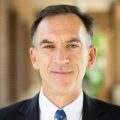
Fearless and Faithful: Past Plagues and Contemporary Pastors
“As for you, always be sober-minded, endure suffering, do the work of an evangelist, fulfill your ministry” (2 Timothy 4:5).
A recent article about the corona virus, written by a London physician ends with an alarming cry: “We’re heading into the abyss.” Meanwhile, others insist that we are over-reacting, that this disease will not be so much worse than a bad flu season. Where can ordinary folk turn for wisdom? To church history, since the plagues that struck Europe from 1330 to 1670 show us how leaders responded to their crises.
As a preliminary note, the history of past plagues explains why experts often say that 20% to 60% of the people in America or the world could be infected by the corona virus over the next year or two. Past pandemic that feature new, highly transmissible diseases have infected that percentage several times in the past. For example, the plague (aka Black Death) reached Europe via Genoese traders in 1330. People did not travel widely then, so it spread slowly until it reached a four year peak, from 1347-51. It then rolled through European and Asian lands for another decade or more. Over 90% of those who contracted the plague died of it within a week. Since historians estimate that Europe lost 30-60% of its population in the fourteenth century, experts conclude that 1/3 to 2/3 of the populace of Europe contracted it eventually.
The church’s response is instructive. In a quotation that is making the rounds, Martin Luther said:
I shall ask God mercifully to protect us. Then I shall fumigate… administer medicine, and take it. I shall avoid places and persons where my presence is not needed in order not to become contaminated and thus perchance infect and pollute others…. If my neighbor needs me, however, I shall not avoid place or person, but will go freely.”
The line, “If my neighbor needs” represents the widespread attitude of church leaders throughout the plagues. In the fourteenth century, priests, monks, and nuns courageously cared for the sick and the dying, knowing that it might cost them their lives; great numbers did perish.
In Calvin’s day, quarantine of the sick in homes or hospitals was widespread. When a version of the plague struck Geneva, some pastors tried to evade hospital visitation. Calvin quickly volunteered to minister to the sick in the hospital. Geneva’s other leaders forbade him, since they believed he was essential to the city, and he reluctantly acquiesced.
Calvin and Luther illustrate the fearless faithfulness common to most pastors. In those days, those who could afford to flee the cities did. But pastors stayed and served their people. So they model faithfulness and fearlessness, born of trust in the Lord and a vibrant conviction that this life is short and that eternal life is our destiny. They show us how to be faith and fearless today.
Pandemics tend to be marked by long and widespread infection. Peak infection and mortality can fall months, even years, after the first outbreak, for they can fade and then return in a second wave. No one knows what will happen this time, but epidemiologists warn that we should at least be prepared for long months of troubles. Pastors, you may need to lead your people faithfully and fearlessly in a crisis that abides. We give thanks that death rates may fall below 1%, but 25 to 50% of the population could be infected eventually. Plan for the long term.
Luther, Calvin and the Puritans never ran from trouble. They endured, preaching, teaching, and visiting as always. Today we have safer ways to visit and preach and we have an obligation to obey our authorities. Still, we must claim our union with Christ and the renewal of the Spirit lest we falter in an era of arduous ministry.
Faithfulness requires that we steadily learn how to offer the best possible online worship services (see notes below) and how best to add a few midweek messages that can partially replace Bible studies and times of spiritual nurture for adults, teens and children. We need to maintain our small groups or communities and give our people every opportunity to join new or existing ones, since people may hunger for community more than ever. Finally, like heroes in ages past, we take care to remember and visit the sick, the widow, and the orphan. May the Lord grant you all sustaining grace, that you may fulfill your noble calling. May we then be able to speak with Paul:
“I have fought the good fight, I have finished the race, I have kept the faith. Henceforth there is laid up for me the crown of righteousness, which the Lord, the righteous judge, will award to me on that day, and not only to me but also to all who have loved his appearing” (2 Timothy 4:7-8).
Extra Help for Faithful Pastors & Teachers
Many of you are suddenly delivering sermons or talks online for the first time. Drawing on my experience and the experience of others, let me suggest three points for pastors and teachers starting to speak online, looking into the lens of a camera rather than the eyes of your people
First, most of us find it hard or very hard to speak to an empty room. Apparently Isaac Newton was an exception. Hardly anyone could understand his lectures, so he spoke to the walls eventually. Very few of us are Isaac Newton. To be effective, you probably need to invite a few healthy and responsive people to gather around as you speak. For online church services, this will be musicians and perhaps a liturgist. Speak to them. Tell them you need their presence and nonverbal feedback. If the setting allows, put a few pictures of your best listeners around. Keep the pictures diverse in gender, age, ethnicity, life experience, and level of maturity.
Second, it’s strange to stare into a camera at first, but you can get used to it by speaking to the person behind the lens. Get to know him or her.
Third, think through the setting with your team. There is comfort to some in having the same setting as always – a pulpit or music stand on a stage, perhaps a cross in the background. But you may be a better communicator in a more intimate setting. This may be especially true as you spend time on the issues of the hour.
Finally, as you practice good hygiene and social distancing, continue to pray for your listeners and for the team leading them. Ask the Lord to grant you the ability to love your people and for them to feel that love, even at a distance. The Lord hears such prayers.

























